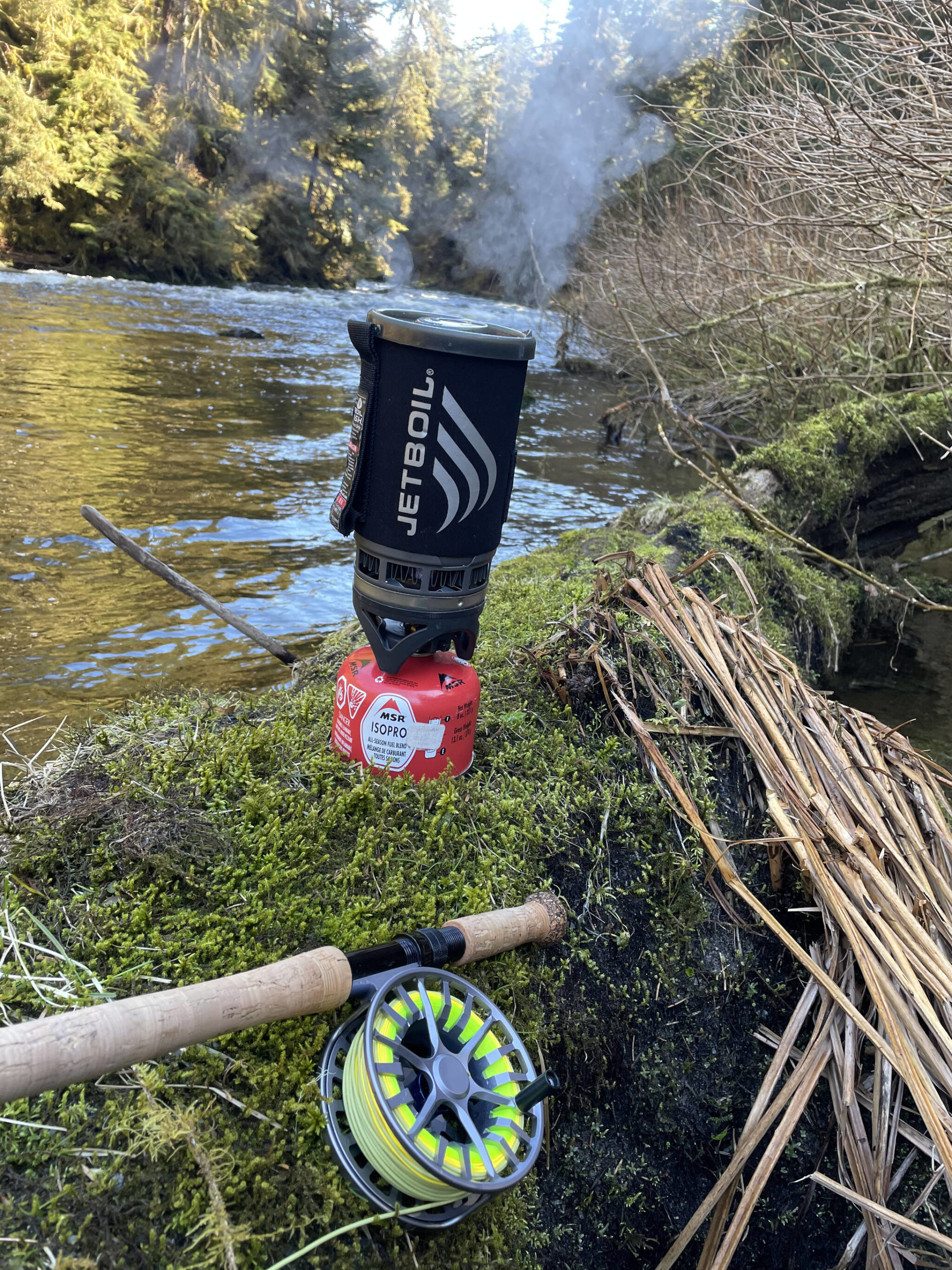It’s really difficult to double-major both in college and in life.
There is just too much depth and too many options in both.
There are plenty of people who can troll up kings, floss sockeye, strip mice across small creeks for voracious trout but also present a No. 20 elk hair caddis to a cutthroat trout. But that’s a lot of skill variation and though many people can do, or have done, they are nowhere near an expert who has honed a particular method.
The more time spent on a particular discipline, the less time spent on another. This is painfully obvious, especially when the scope is broadened to include hunting.
I feel that the last ten years of my life have been so tilted toward hunting that my fly-fishing skill has been left to almost atrophy.
There was a time I was satisfied with the trajectory of my fly-fishing skill. Ironically that came when I was living in California, when I was spending as many weekends as I could in the mountains finding brown trout under cutbanks or big rainbows hidden under bushes or logs.
My trout fishing suffered when I moved home, but I became a bona fide steelhead angler which, in the eyes of many, would be akin to ascending to the upper division level of fishing with a fly.
The temperamental nature of steelhead fishing, given the sheer amount of variables and attitude of the fish themselves, doesn’t lend itself to rapid improvement. There are such long stretches of oblivious wrongdoing and skillful skunkings that it can be difficult to accumulate those little wins that lead to confidence and growth. That’s why steelheaders often characterize themselves as fanatics. It takes a lot of time and comfort with frustration to become the type who can hook up when others aren’t. It takes focused effort with few distractions and when seasons overlap, a choice must be made. To do one, you must cease doing another.
Rare is the angler who has a PhD in both trolling for winter kings and swinging for steelhead.
There simply aren’t enough hours to become an expert at both. This becomes an absolutely blissful nightmare in August when hunting, fishing and gathering are all in season.
So what gets left out and how best to handle the loss?
There was a time I would have introduced myself as a fly fisher who hunts, but after calculating the hours, I’m now the opposite.
The active hunting season gave way to the passive hunting season, applying for tags, planning trips and scouting areas. Hunting, hunting, hunting. Most of my writing is about hunting, podcasts are about hunting because as I’ve found a level of proficiency in deer hunting, I’ve had a taste for caribou and mountain goat hunting and crave the opportunity to have more experiences chasing them too.
Then my mother-in-law bought me The Optimist by David Coggins for Christmas and I feel a weight accumulated by so much time spent not thinking about steelhead, reading about fly fishing, tying flies or even shopping for fly fishing gear I don’t need. Do I even have any tippet? What have I become? While I am happy with my skill trajectory as a hunter, I feel like I have regressed as an angler, as though years of experience have broken off like a steelhead
It feels as though there is a part of me that cannot be satisfied by any other outdoor experience than standing in a cold river angling for a fish I don’t intend to keep.
• Jeff Lund is a freelance writer based in Ketchikan. His book, “A Miserable Paradise: Life in Southeast Alaska,” is available in local bookstores and at Amazon.com. “I Went to the Woods” appears twice per month in the Sports & Outdoors section of the Juneau Empire.

